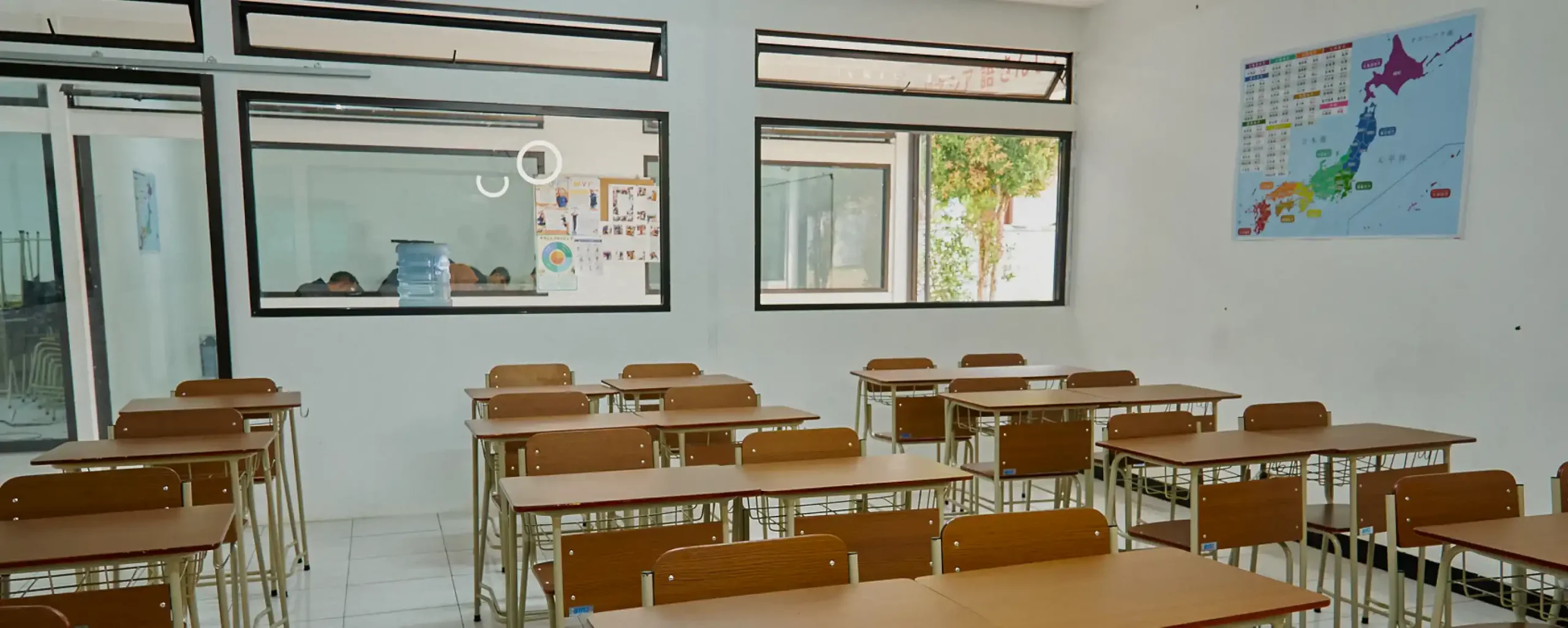
We operates a Japanese language school (LPK) in Bandung, Indonesia
To train the specified skilled foreigners we plan to introduce. We dispatch native instructors from Japan, which improves the quality of education. Furthermore, the resource of the host company in the care/service industry would be utilised directly in the education to train personnel so that they possess the ability to work immediately after they move to Japan (tailor-made human resource development), which will lead to the retention of foreign workers. In addition, we made it possible to pay tuition fees after they started working in Japan. We aim to create a world in which low earning people who really need to migrate can work in Japan.
See daily activities here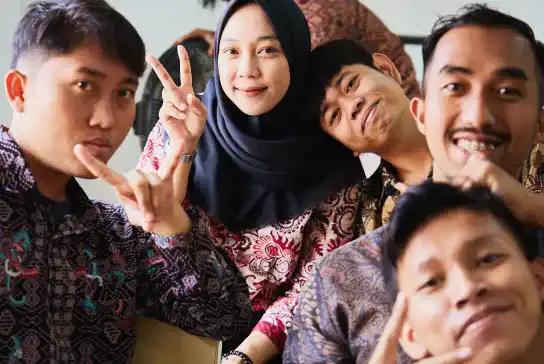

POINT.01
Specialization in the Caregiver/Service industry Intensive training for conversations commonly used in the field.
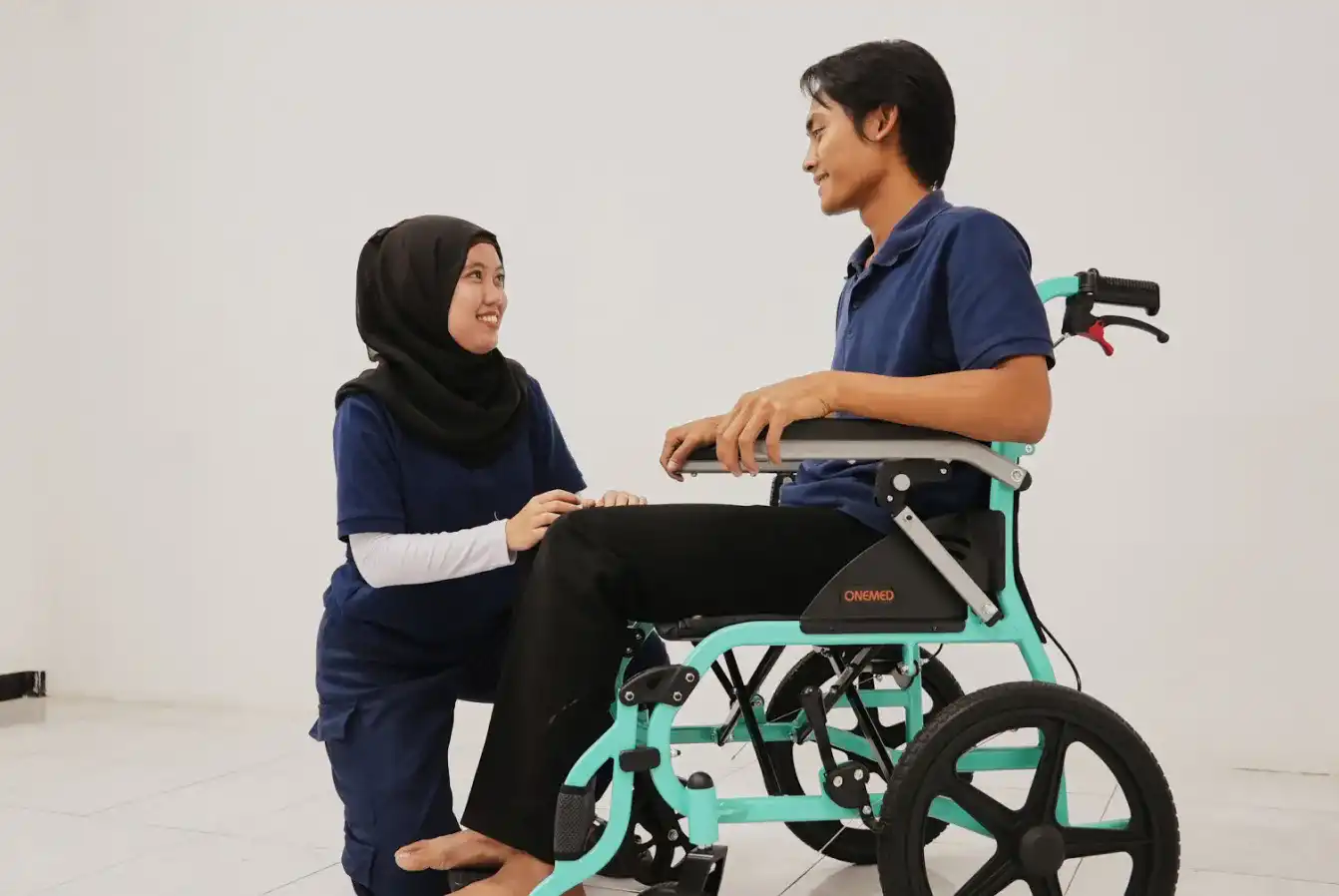
We do not teach those who wish to work in Japan with the specified skilled worker visa in the same classroom as those aspiring to be an international students or engineers. By only training students specialising in the nursing/service industry, we can provide intensive training in practical conversation and skills used in nursing homes and restaurants in Japan through roleplay and OJTs. In addition, as a subcontracted local training organisation for host companies, we train prospective employees on their behalf with their manuals and send them to Japan with the necessary skills used within the company in advance. Making us the first to take on the challenge of tailor-made personnel training.
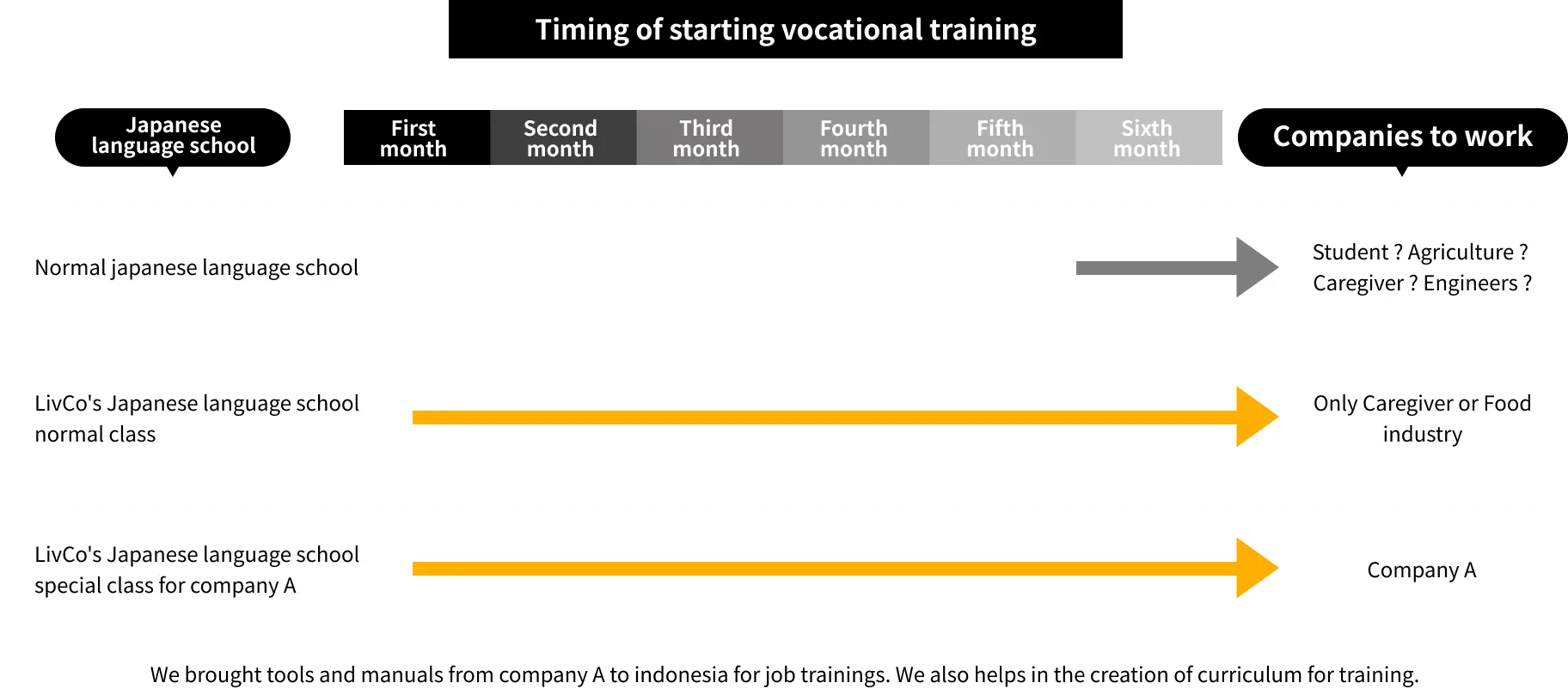
POINT.02
Also education regarding teamwork, financial management and career!!
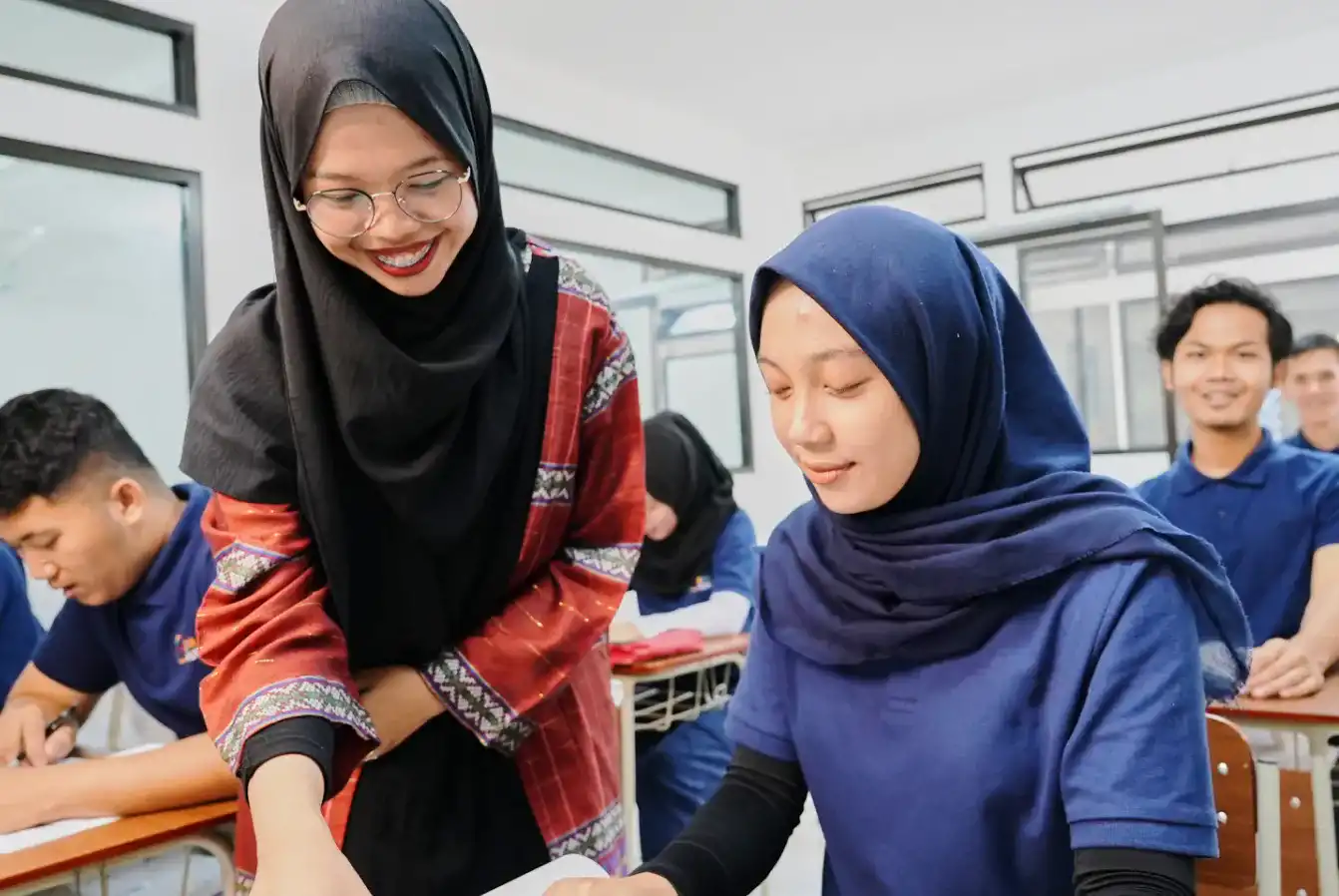
Language is not the only challenge that foreign workers face in Japan. In fact, many of them quit their jobs because they cannot keep up with the strict teaching they receive in the workplace due to differences in culture and customs. There are people who go bankrupt because they cannot manage their own money, people who have problems with neighbours because of the way they dispose of rubbish, and people who repeatedly change jobs because they choose a workplace based solely on the value of ‘wages’. We have developed our own curriculum based on the assumption of ‘real life and work in Japan’ and focus on educating people to be able to act independently. *Our educational policy emphasizes independence and responsibility, rather than a military-style education that is overly strict. Our style is different from other Japanese language schools: no smoking, no forced shaving, no uniforms, etc.
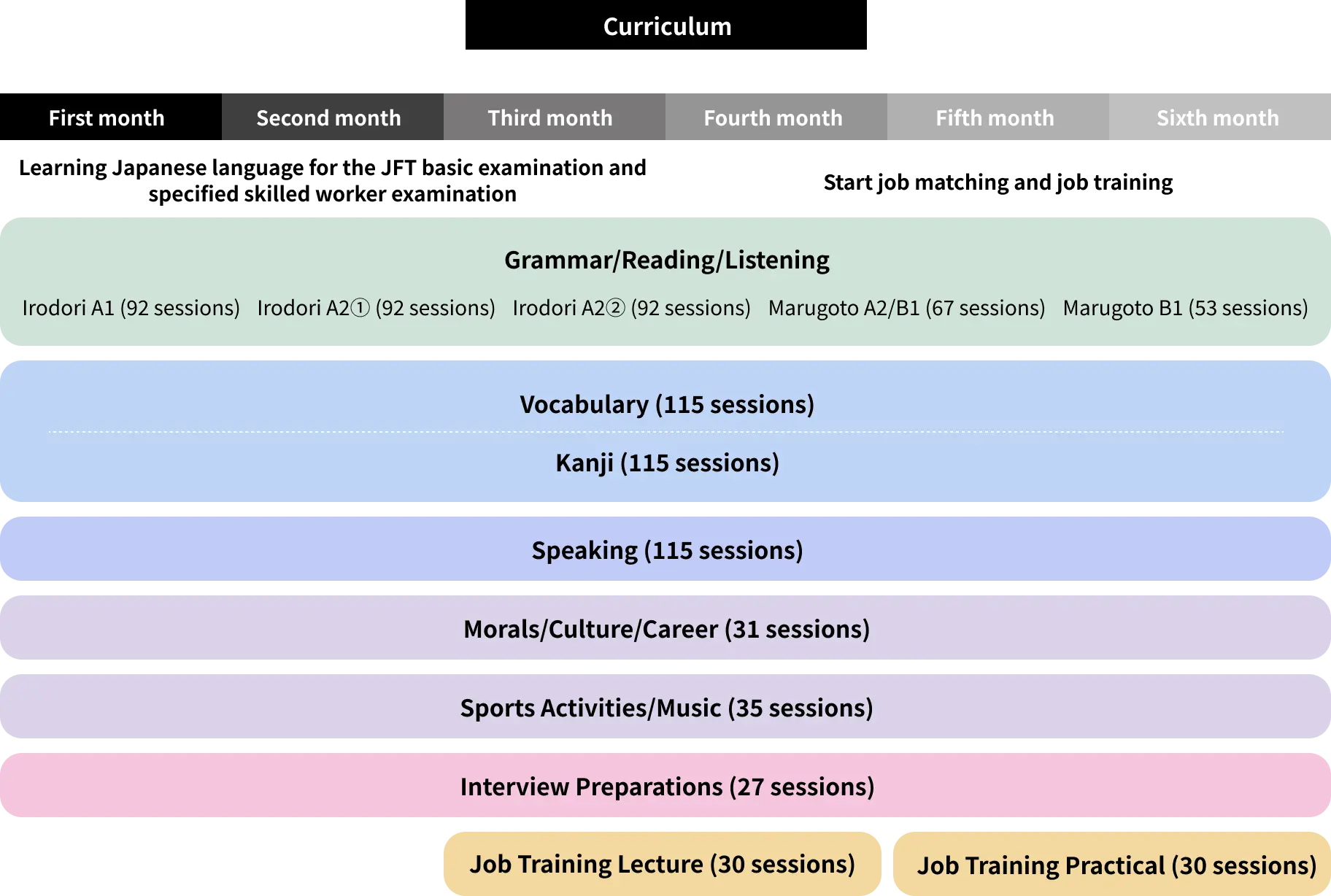
POINT.03
Dormitory for 100 peoples above a 2000 square metre land Equipped with sporting ground Renovated classroom
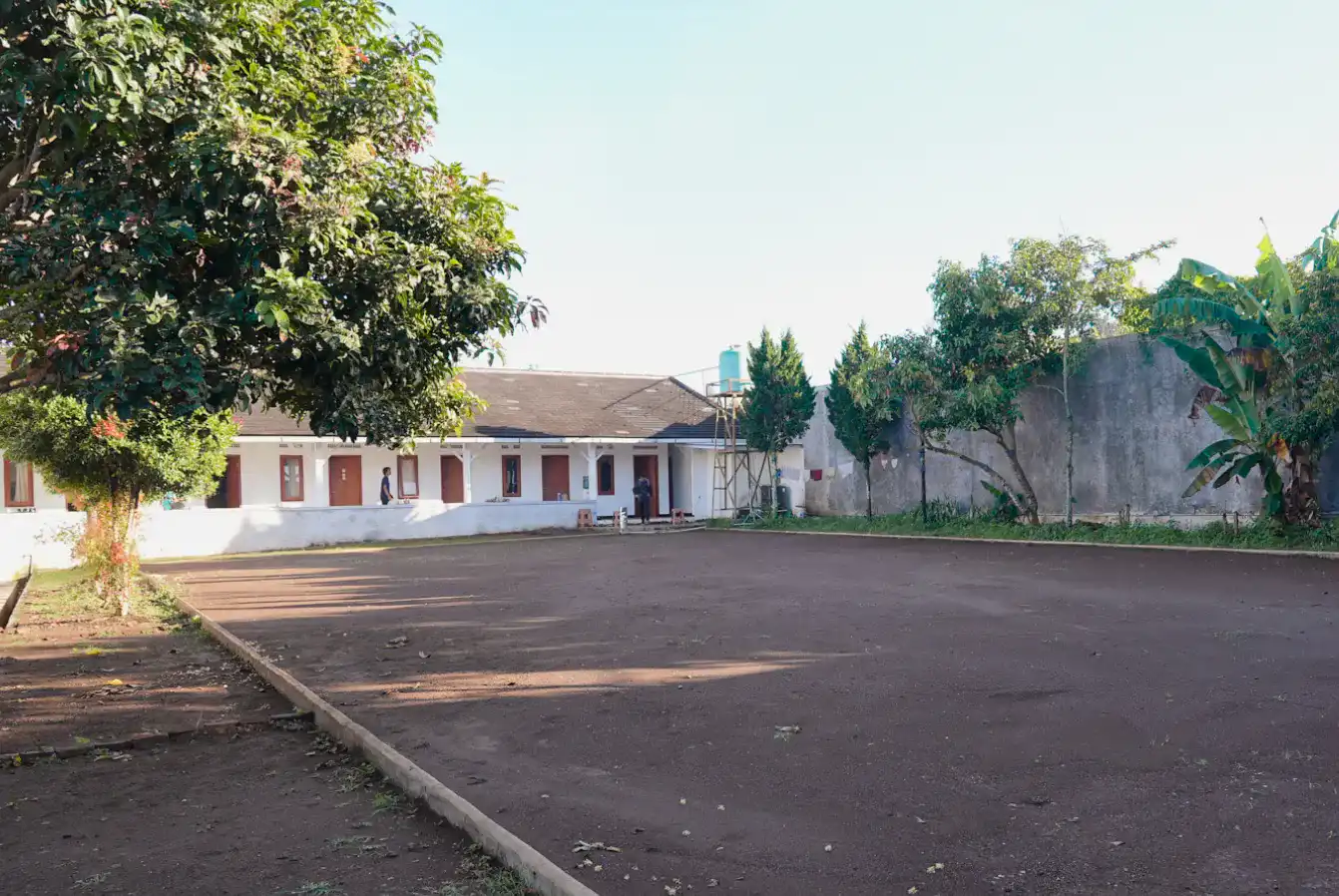


Our Japanese language school (LPK) covers an area of 2,000 m2, more than enough for students to study and pursue their dreams. Classes are held in renovated classrooms. The students live together in dormitories. Through living together with students from different backgrounds, genders, and ages, we teach them how to interact with others and the importance of teamwork. Our school is also equipped with a sports field where students can learn teamwork through sports such as football, basketball and baseball.
POINT.04
Native~Local teacher ratio : 50% A minimum of N1 level Japanese proficiency for local teachers !
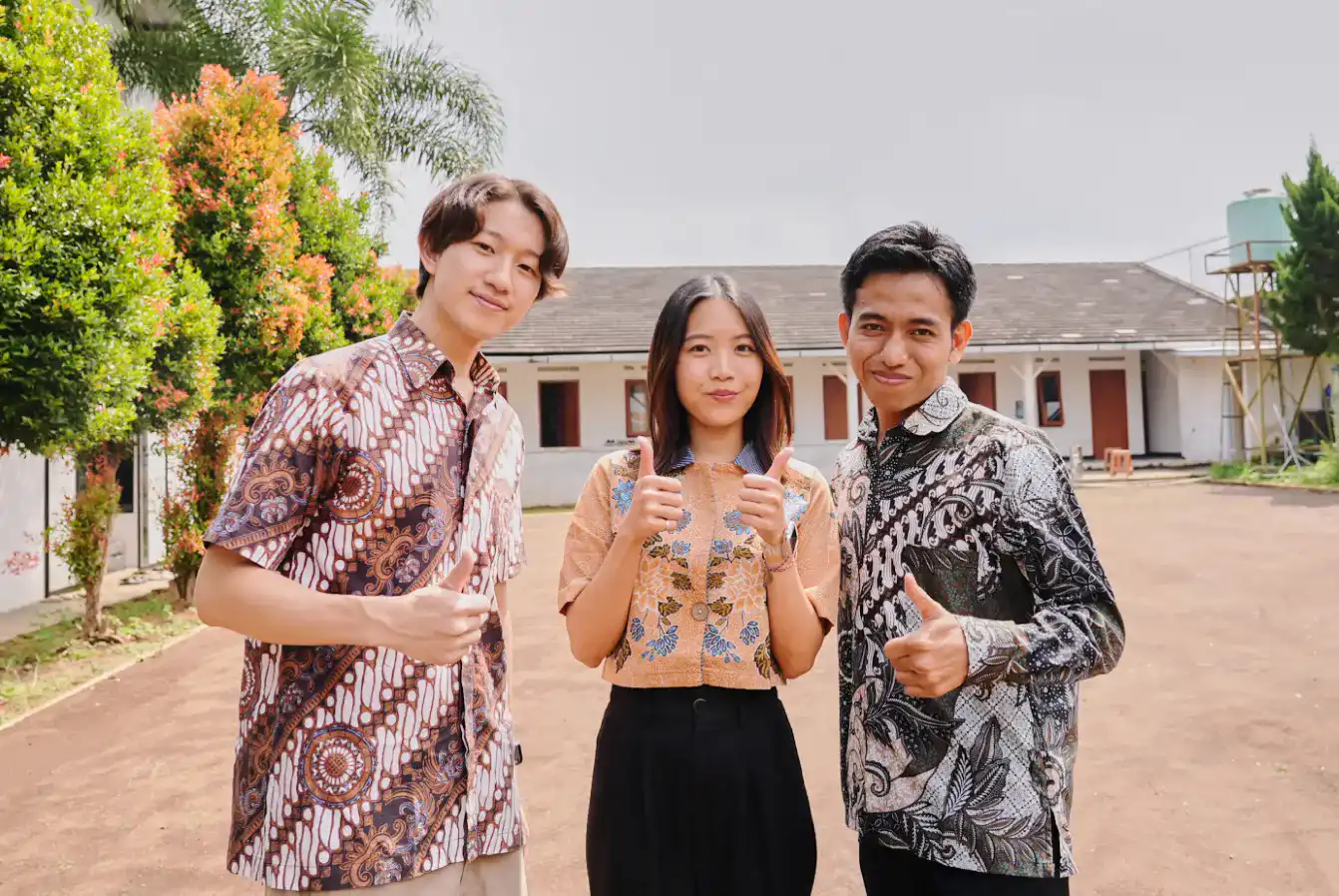
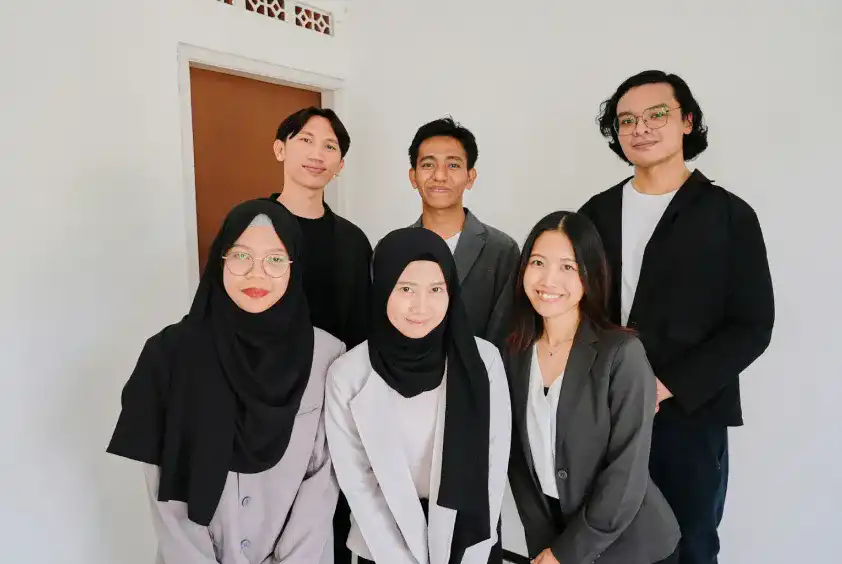

We dispatch native Japanese teachers from Japan and has a large number of personnel with high Japanese language teaching skills through our own recruitment, utilising our strengths as a human resources company. The fact that the company is located in Bandung, an academic city, also strengthens our recruiting capabilities.
[Overview of Bandung] A historical city where the Asian-African Conference was held in 1955, where independence and national self-determination of developing countries were advocated. Located 30 minutes from Jakarta by train (bullet train) and 2-3 hours by car, it is the main city of West Java. The city has the fourth largest urban population in Indonesia with around 2.5 million people. Located in an area of high elevation, the temperature is around 23 degrees Celsius all year round and air conditioning is not necessary. It is also an academic city with many of Indonesia's top universities, including Bandung Institute of Technology and Padjadjaran University.
Our lecturer's profile
-

Olivia
Olivia
Born in Bali to an Indonesian father and Japanese mother. She came to Japan during her university years and graduated from Doshisha University. After graduating from university, she joined LivCo Ltd, where she worked for one and a half years as a sales representative for host companies. In her second year as a new graduate, she was selected to be manager of our Japanese language school and was responsible for the overall start-up of our school.
-

Kei
Kei
Born in Tangerang, Indonesia. Graduated from Tokyo Designer Gakuin. During his studies, he worked for 4 years at an Italian restaurant in Tokyo, teaching Indonesian people how to work in the food service industry. He speaks fluent English, Indonesian, and Japanese. He has also worked as an illustrator and English conversation coach.
-

Hanina
Hanina
Graduated Gadjah Mada University with a bachelor degree in Japanese language, she worked for 2 years in a translator company in Tokyo. She was an exchange student for Ferris University in Yokohama, and is JLPT N1/BJT certified. She has been a translator, interpreter and teacher of Japanese for about 10 years and has sent more than 200 students.
One-stop serviceForeigners admission scheme
In the one-stop Admission Scheme, there are two intermediaries, a Japanese human resources agency called the registered support organization and a local educational institution called Sending Organisation, and depending on the status of each organisation, there is a risk that job information and human resources requirements may be overhauled before assigned to foreign candidates.
The worst case scenario is that a foreigner ends up being informed of the type of industry and workplace after arriving at Narita Airport, and is taken to a workplace that is completely different from what he or she expected. (Ministry of Justice data, 2022).
The one-stop service of registered support organisations and local educational institutions reduces such risks, and furthermore, by directly utilising the resource of host companies in our Japanese language school, Japanese language education and vocational education are conducted in chronological order before starting work, increasing the likelihood that foreigners can work as effective human resources in Japanese workplaces.
-
The flow : Recruitment of foreign Specified skilled worker

-
The flow : One-stop admission scheme

-
Example.
Elderly people requiring nursing care level 3 and above.
Special nursing homes for the elderlyAs methods of care and medical terminology are important, the facility provides a manual, and students will learn through classroom lectures and practical skills from the fourth month after enrolment (the school will be equipped with beds and practice dolls).
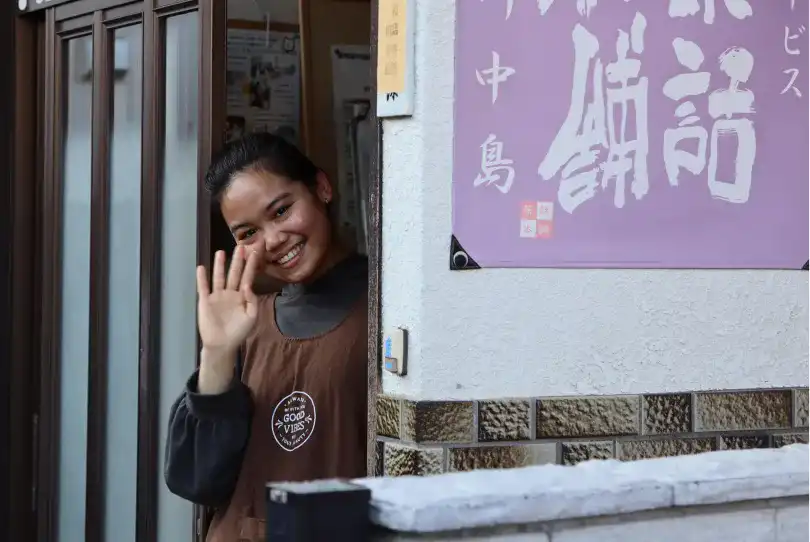
-
Example.
Seafood Izakaya
As skills and experience in handling fresh fish are required, fresh fish and a knife are purchased and practical training is given from the fourth month after enrolment.

- The level of education will be improved by strengthening recruitment, for example by making it possible to dispatch native teachers from Japan.
- We made it possible to pay tuition fees after they started working in Japan. We aim to create a world in which low earning people who really need to migrate can work in Japan.
Company
-
Company Name
LivCo Inc. (old : ASEAN HOUSE Inc.)
-
Established
July 2021
-
Capital
84,784,584yen
-
CEO
Shotaro Sasa
-
Our Business
Global HR Platform Business
Life Support Business for Foreigners
Real Estate Business for Foreigners
Media Platform Business for Foreigners
Human Resource Development Business in Indonesia -
Address
YS Building, 5-10-4 Nishi-Shinjuku, Shinjuku-ku, Tokyo
